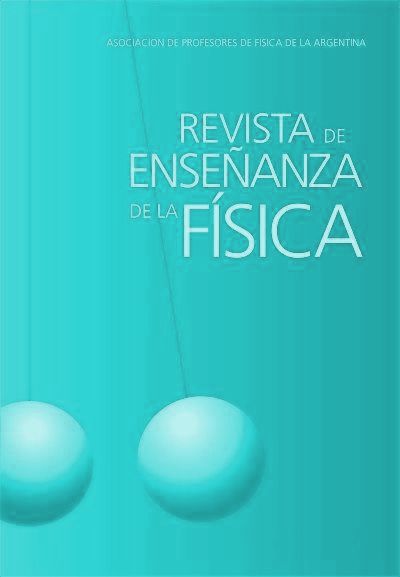Design of low-cost physics laboratory experiences for natural sciences in elementary school
Keywords:
Laboratory, Natural sciences, Scientific vocations, Physics, Elementary schoolAbstract
The objective of this work was to design simple and practical experiences of the Physics Laboratory with low-cost materials, so that they can be carried out in the Natural Sciences curricular space, with students from fourth to seventh grade of primary school. For this purpose, a school in a neighborhood in the western zone of the City of La Rioja was chosen as a pilot. This school did not have a Natural Sciences laboratory, although it did have some instruments to make measurements. Within the framework of the proposal, experiences were carried out with the students together with the teachers in charge of the subject. The material prepared was donated to the school, as well as the work guides and all the material prepared so that it can be reused by students and teachers, it can also be modified and readapted to their realities. The laboratory practices were carried out so that they can be replicated in other primary schools. Challenges were presented in the creation of devices to complement the already existing elements, thus giving students and teachers an approach to equal opportunities with respect to other students of the same level that if they have complete and state-ofthe-art experimental laboratories, promoting thus the teaching of Physics and Natural Sciences
References
Aredes, J.P., Rossi, B. y Tirimacco, S. (2022). Una deuda del nivel superior: El laboratorio como recurso educativo. Disponible en: https://campuseducativo.santafe.edu.ar/el-laboratorio-como-recurso-educativo/
Davini, M. (2015). La formación en la práctica docente. 1.a ed. Buenos Aires: Paidós.
Furman, M. y De Podestá, M. E. (2021). La aventura de enseñar Ciencias Naturales. Aique.
Downloads
Published
Issue
Section
License

This work is licensed under a Creative Commons Attribution-NonCommercial-NoDerivatives 4.0 International License.
Aquellos autores/as que tengan publicaciones con esta revista, aceptan los términos siguientes:Los autores/as conservarán sus derechos de copiar y redistribuir el material, bajo los términos estipulados en la Licencia de reconocimiento, no comercial, sin obras derivadas de Creative Commons que permite a terceros compartir la obra bajo las siguientes condiciones:
- Reconocimiento — Debe reconocer adecuadamente la autoría, proporcionar un enlace a la licencia e indicar si se han realizado cambios. Puede hacerlo de cualquier manera razonable, pero no de una manera que sugiera que tiene el apoyo del licenciador o lo recibe por el uso que hace.
- NoComercial — No puede utilizar el material para una finalidad comercial.
- SinObraDerivada — Si remezcla, transforma o crea a partir del material, no puede difundir el material modificado.
- Los autores/as podrán adoptar otros acuerdos de licencia no exclusiva de distribución de la versión de la obra publicada (p. ej.: depositarla en un archivo telemático institucional o publicarla en un volumen monográfico) siempre que se indique la publicación inicial en esta revista.
- Se permite y recomienda a los autores/as difundir su obra a través de Internet (p. ej.: en archivos telemáticos institucionales o en su página web) antes y durante el proceso de envío, lo cual puede producir intercambios interesantes y aumentar las citas de la obra publicada. (Véase El efecto del acceso abierto).










